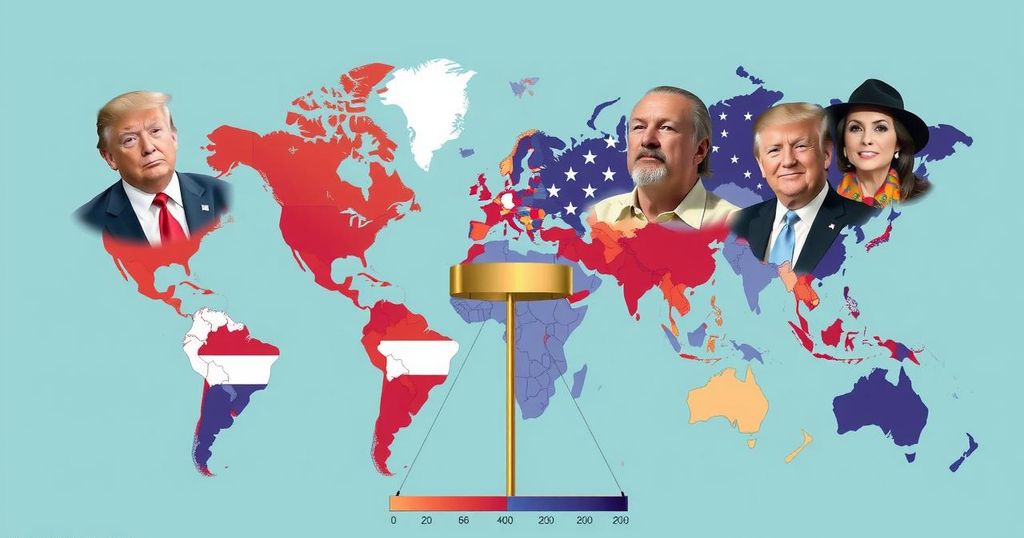In 2024, elections in around 70 countries indicated voters’ growing frustration with incumbents, primarily due to economic hardships and social unrest. Major upsets occurred in democracies including India and the United States, where traditional parties lost ground to outsiders and populist movements. Serious allegations of electoral interference and protests characterized the year, culminating in significant uncertainty regarding the future of democracy worldwide.
The year 2024 witnessed a unprecedented wave of electoral upheaval as voters across approximately 70 countries, representing a substantial portion of the global populace, expressed discontent with incumbent governments. Voter fatigue, largely attributed to protracted economic disruptions stemming from the long-term effects of the pandemic, geopolitical conflicts, and rising inflation, fueled a significant anti-establishment sentiment. Incumbents faced defeats in notable democracies, including India, the United States, Japan, and multiple African nations, indicating a decline in support for traditional parties. In countries such as South Africa and Senegal, historic political strongholds crumbled under mounting pressure from dissatisfied electorates.
While populist and far-right movements gained traction—evident in various European nations—the year also highlighted alarming incidents of electoral malpractice and allegations of foreign interference. Political turmoil and protests erupted in nations like Georgia and Mozambique, further underscoring global democratic challenges. In contrast, the unexpected outcome of Donald Trump’s re-election solidified American political volatility, leaving international observers apprehensive about the future of democratic governance worldwide.
As global elections unfolded in 2024, they were marked by significant voter backlash against incumbents, driven primarily by discontent with economic hardship and governance failures exacerbated by the COVID-19 pandemic. This anti-establishment wave was intertwined with social unrest, elevating the prominence of far-right parties in various regions. Observers noted a stark decline in support for established political parties, as citizens sought alternatives amid a backdrop of heightened dissatisfaction with democratic processes. The article captures the essence of these developments, showcasing both the resilience of democratic ideals and the challenges posed by electoral disruptions and foreign meddling.
The tumultuous electoral landscape of 2024 reveals a profound voter fatigue and a yearning for change within democratic societies worldwide. The significant losses suffered by incumbents suggest a critical juncture for political parties to re-evaluate their strategies and address public grievances effectively. Moreover, as authoritarian influences and electoral interference pose grave threats to democratic integrity, it is imperative for nations to bolster their electoral processes and embrace transparency to restore public confidence. The upcoming elections in 2025 may further define the trajectory of global democracy amidst these enduring challenges.
Original Source: www.clickorlando.com






